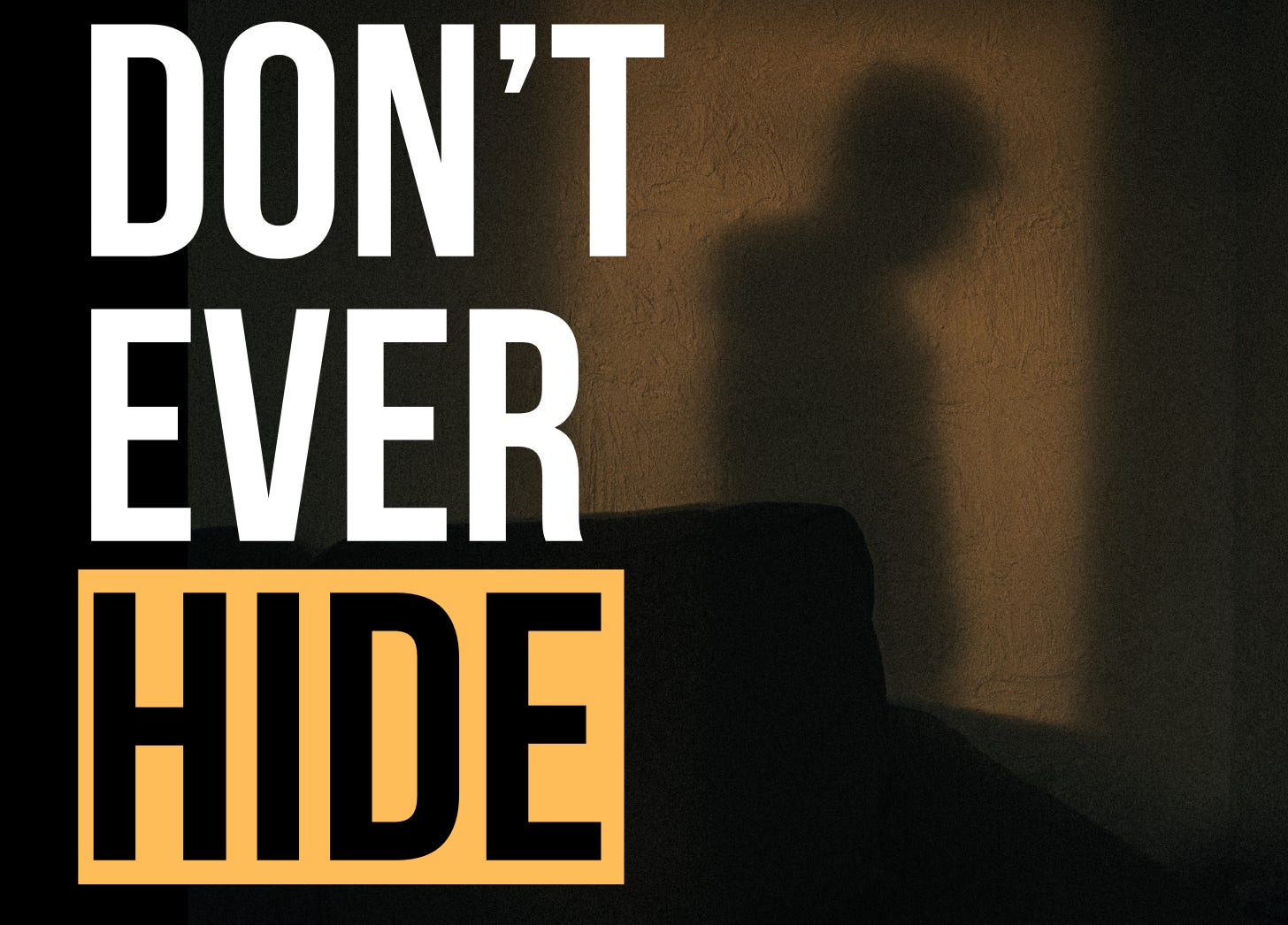Don't Ever Hide
Hiding is almost always the worst thing any consultant can do. It will make your situations many times worse.
Welcome to my consultancy newsletter. If you want to build a thriving consultancy practice in your niche, I want to help. Please subscribe to my newsletter and browse my favourite posts.
How To Make A Bad Situation Much, Much, Worse
Many years ago, I hired someone to work for us.
He began the project well but I soon began to notice we didn’t always have a great deal of visibility in his work. He would usually work on documents stored locally on his hard drive (not in the shared folder).
On one important project, he kept promising to upload them - but there was always a reason why it didn’t happen.
He mentioned bouts of illness, power outages, deaths of relatives, and sudden emergencies. One time he was ever so close to uploading them but his laptop battery died at the last moment and he couldn’t find the charger.
Eventually, he simply stopped replying to messages altogether and I haven’t heard from him since. That was four years ago.
How Situations Can Snowball
Based on my past experienc…



